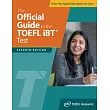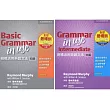IELTS雅思國際英語檢測是國際認可的英語能力證明,報考方便,是最廣泛參與的英語考試之一,除了英國與紐澳,美國多所知名大學亦採用IELTS成績。考試內容多取材生活情境,有別於學校課堂英語學習,講究實用,欲前往國外求學、工作者的英語檢測多以此為主,更可做為應試者個人英語能力的參考與指標。
Practical IELTS Strategies系列就是教導考生如何在IELTS考試獲得好成績的最佳工具書。本書內容涵蓋文法及字彙,提供20個學習秘訣(Tip)和相應的40個練習題,每個秘訣均互相扣合,考生能循序漸進學習閱讀要領、牢記答題技巧。最後則列出所有學習重點摘要,並附有四回測驗題,讓考生一次複習所有技巧,應用於答題之中,必能在考試中獲得高分。
About this Book
So, you have Book Two of the Practical IELTS Strategies series. Let us first be sure we know the meaning of those two key words.
Practical = connected with real situations; right or sensible; likely to be successful
Strategy = a plan that is intended to achieve a particular purpose;
the process of putting a plan into effect in a skilful way
This book—Book Two—is for the IELTS Speaking Test. This is not a grammar book; not a testpractice book; not a vocabulary book, although all of those elements are here. Overall, this book is practical and strategic, exactly as those definitions tell us. The real situation is the IELTS test, and the particular purpose or plan is to give you the highest score that you can achieve.
My other ‘Practical IELTS Strategies’ books are:
Book 1: Reading
Book 3: Writing Task One [Academic Module]
Book 4: Writing Task Two [Academic Module]
Book 5: IELTS Test Practice Book
Now, it is very important at this stage for you to trust me, and for this to happen you need to know two facts. The first concerns my credentials. In order for you to trust someone who writes an IELTS preparation book, they must be fully qualified to do so. Please look at the back cover of this book, and read my credentials carefully. The second fact concerns why I wrote these books. Let me begin this by saying that students of English often come to me and ask, ‘How do I pass the IELTS test?’ This is the wrong question—you do not pass or fail the test; you just receive band scores. However, I know what the students mean. They mean how do they achieve the bandscore they need—usually 6.5 or 7.0 overall.
So what do I say to these students? I usually say that there are no magic answers to obtaining higher band scores in the IELTS test. It is a test of English language ability, so, of course, you obtain higher scores by having higher ability. The best way to raise your ability is simply to practise your listening, reading, writing, and speaking. However, no matter how you’re your English may be, it is certainly possible for you to be unprepared, unpractised, and to try to do parts of the IELTS test in the wrong way, and thus to receive a result lower (or far lower) than what your English ability deserves. This is why it is also important to prepare and practise. I say this, too, to my students. However I know that they want a more definite answer.
This is why there is so much ‘IELTS Preparation’ material available, and my students often have, read, and use some of it, but does this material always provide the best advice and approaches?
The answer is no. Students should know that there are no magic answers, and that practice and preparation are important to achieving a high IELTS band score, but they clearly want and need some practical and strategic approaches showing how, and they are too often relying on unsatisfactory material to find this.
So that is why I wrote these IELTS books. In short, these books are the answer to that question about how to ‘pass’ the IELTS test. The answer is to follow the tips in these books. In this one, there are twenty tips and over forty exercises.
Each tip builds on the previous. Each tip is solid, proven, and supported. There are answers to all exercises. All the knowledge is summarised and demonstrated at the end to make a clear and achievable framework. This book is how you ‘pass’ the test. So, let us then begin on this road.
本書特色
‧ 20個實用學習秘訣,確實掌握閱讀技巧
‧ 40個練習題,配合學習秘訣,立即應用
‧ 最後列出學習摘要,回顧所有重點
‧ 附加總復習測驗與四回全真考題,紮實提升閱讀實力
作者簡介
Andrew Guilfoyle
澳洲墨爾本皇家理工學院教育碩士,並有劍橋英語教學教師訓練資格,曾任教於澳洲Monash大學語言中心與IELTS測驗研習中心;在五個國家擔任過英語教師,從事教學工作超過19年,經驗豐富,是IELTS領域的專家,目前任教於CES英語學習中心。



 天天爆殺
天天爆殺  今日66折
今日66折 
































 博客來
博客來 博客來
博客來 博客來
博客來 博客來
博客來 博客來
博客來